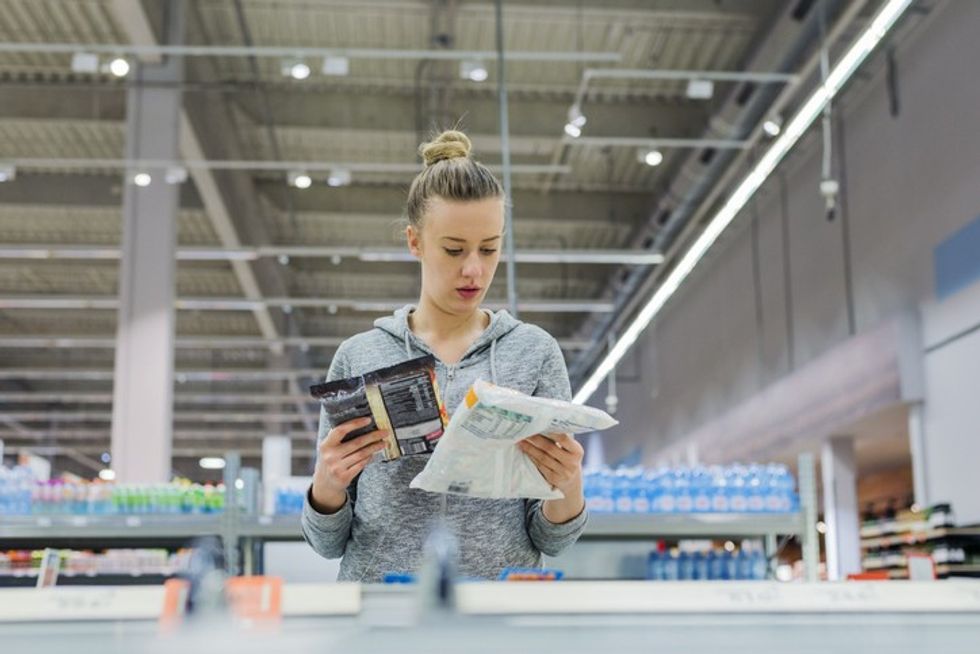Despite recent media exposés exposing alarming nutritional flaws in baby food and ready meals, consumer buying habits continue to remain largely unchanged, forcing independent retailers to walk the tightrope between shopper trust and practical business decisions, finds Asian Trader.
In the past few weeks, some headlines were hard to miss.
From a damning BBC Panorama sweeping report alleging misleading nutritional claims by major baby food brands and another one on ready meals’ high levels of salt and fat, scrutiny of what’s on store shelves was sharp.
But beyond the outrage and media buzz lies a more commercially loaded question- how much these reports actually affect consumer behaviour in-store, particularly in convenience retail and how swiftly a retailer should react?
For many retailers, the answer is nuanced. Quite contrary to media uproar as well as heated discussions on online forums like Mumsnet, most convenience retailers saw little to no effect.
There were subtle shifts in shopper conversation or increased scrutiny of product labels but overall, there was no immediate sales plunge following such media storms. In some brands, it just might be the case of unshakeable trust that the consumers have formed over the years.
Either ways, it is clear that headlines may grab attention, but unless media outrage taps into deeper consumer sentiment or is followed by a policy change, its impact on the aisles is limited.
Baby food debate
The baby food category, however, carries a different kind of emotional weight. For many parents, trust in brands is paramount, and any disruption to that trust can hit harder.
The Panorama report tested 18 popular baby food pouches, finding many lacked essential nutrients like iron and vitamin C. Included in the investigation were leading names like Ella’s Kitchen, Heinz, Piccolo, Little Freddie, Aldi, and Lidl.
Some pouches reportedly contained more sugar than a one-year-old should consume in a day. Others were marketed for babies as young as four months, despite NHS and WHO guidance that solids shouldn’t be introduced before six months.
Experts warned that while convenient, these pouches should not replace home-cooked meals.
The findings raise concerns about a multi-million-pound baby food pouch market that has become a household staple, valued for its convenience and long shelf life.
Shortly after the Panorama report, online forum Mumsnet was abuzz with the discussion though the tone was more resigned than disbelief.
“They’re like microwave dinners for babies,” wrote one user. “Fine in an emergency, but not daily.”
Others voiced frustration over misleading marketing, likening the pouch phenomenon to “unnecessary follow-on formula” driven by corporate profits.
“I always knew that the pouches would be rubbish but was still shocked at just how rubbish they are - I'd assumed some work had gone in to making sure they contained sensible amounts of RDAs for protein, vitamins and minerals. But apparently not,” wrote another Mumsnet member.
Ella’s Kitchen, singled out for its fruit puree-heavy recipes and high sugar content, was quick to hit back at the BBC findings.
In a statement, the company defended its range as safe, nutritious, and supportive of busy parents.
“We have always looked at what is on the shelves and worked hard to create healthier, better-for-little-ones alternatives that taste good too.
"Over the past few years, we have worked harder than ever to improve our products even further, especially when it comes to reducing naturally occurring sugars, and we are not stopping there,” stated the public statement.
While the Panorama episode sparked strong reactions on social media, brands in question like Heinz’s Sweet Potato, Chicken and Veggies pouch remained widely available and visually dominant on shelves. Shopper baskets too did not show a dramatic exodus.
However, for some retailers, such reports come as as a red flag.
Experienced retailer Bobby Singh, who runs BB Superstore & Post Office in West Yorkshire, strongly feels that trust must be earned and protected.

“As a retailer, I take concerns like these very seriously,” he told Asian Trader.
“Parents place immense trust in the products they buy for their children, and it’s absolutely essential that this trust is honoured with honesty and transparency.”
Singh sees such media exposés not just as PR noise, but as reminders of his and of his store’s responsibilities towards his community.
He said, “I believe retailers have a responsibility not just to sell, but to help inform. That means working only with brands that uphold the highest standards and being transparent about what’s in the products we offer.
“Customers deserve clear, accurate information so they can make fully informed decisions—especially when it comes to something as important as baby food."
“Moving forward, I’m committed to reviewing the brands we stock and ensuring they align with the values our customers expect and deserve. Trust isn’t just a part of business, it’s the foundation.”
Adult meals not far behind?
While baby food brands found themselves under intense scrutiny, the state of adult ready meals is not any better. In fact, it is far saltier and fattier than shoppers might expect.
According to a recent research from Action on Salt, based at Queen Mary University of London, most ready meals are loaded with excessive levels of salt, fat, and calories, with so-called premium brands faring worse than budget-friendly alternatives. In a twist of irony, it’s the cheapest meals that come out healthiest on average.
The report highlights a stark disparity- every single ready meal from Wasabi, Jamie Oliver, and Kitchen Joy was found to be high in salt. Meanwhile, 91 per cent of Charlie Bigham’s and 89 per cent of Royal and Saputo Dairy UK’s products failed to meet healthy salt standards.
But the sodium overload is only part of the problem.
The study found that major players like Saputo Dairy, Jamie Oliver, Charlie Bigham’s, Royal, and Bakkavor also offered a disproportionate number of meals high in fat, saturated fat, and/or salt.
Alarmingly, 100 per cent of ready meals from both Jamie Oliver and Saputo Dairy UK were also low in fibre, compounding their poor nutritional profile.
When it came to calories, Saputo Dairy UK again topped the charts for the wrong reasons- 78 per cent of its ready meals exceeded the maximum recommended calorie guideline, followed closely by Royal (67 per cent), Bakkavor (60 per cent), and General Mills (57 per cent).

Only The Gym Kitchen and Weight Watchers stood out as outliers as the only two companies with no meals flagged as high in fat, saturated fat, or salt.
The findings also shatter the perception that higher prices mean better health.
Meals priced over £4.51 were found to contain, on average, higher levels of energy, fat, saturated fat, and salt than meals priced under £1.50. The cheapest tier, like those costing £1.50 or less, emerged as the most nutritionally balanced.
Sonia Pombo, Head of Impact and Research at Action on Salt, didn’t mince words.
She slammed the industry for failing to act despite two decades of salt-reduction targets, and criticised the government for relying on voluntary, unenforceable standards.
“With over half of ready meals dangerously high in salt,” she said, “the government must act with mandatory limits and real consequences.”
Some brands, however, pushed back.
Charlie Bigham’s CEO Patrick Cairns defended his recipes. He told Asian Trader, “At Charlie Bigham’s, flavour always comes first.
“We make food which is as tasty as possible, listening carefully to consumer feedback on the taste of dishes to make sure they reflect the consumer palette. At Charlie Bigham’s we have been slowly reducing the amount of salt we put in our food and will continue to do so.”
A Jamie Oliver Group spokesperson also responded to the report, asserting that their range is clearly labelled, meets high ingredient standards, and includes both indulgent and healthy options.
It seems that the UK’s ready meal market is failing consumers on multiple fronts. However, consumers remain largely unaffected.
Northamptonshire-based independent retailer Vidur Pandya shared a grounded view of the recent ready meal report highlighting consumer’s nonchalant response on the findings.

“Regarding salt content in ready meals, we haven't seen any shift of consumers,” Pandya told Asian Trader.
“However, sales for ready meals have been falling for a while in our store as shoppers are switching to fresh cooking, so we have increased our fresh meat and veg offerings.
“Frozen ready meal sales are steady due to lower price point than chilled range,” he added.
Interestingly, Pandya sees these reports less as a crisis and more as a prompt to watch evolving behaviour.
"Following on the reports I will closely monitor shoppers’ behaviour to see what's happening and will be speaking to some to get their understanding,” he said.
Now what?
Beyond ready meals and baby food, questions of British food integrity are continuing to surface lately.
For instance, the UK’s latest trade agreement with the US allows for limited beef imports, sparking fears over hormone use and quality standards of American beef.
While big supermarkets like Tesco have publicly rejected American beef, the episode is another reminder that consumer trust in food sourcing remains fragile and that independent retailers, too, may need to reassure shoppers about what’s behind the label.
While headlines may stir noise, actual impact on footfall and category sales is often muted unless amplified by legislative restrictions.
So, what does all of this mean for independent retailers? In a space where consumer concern is loud online but faint in stores (sometime due to unshakeable trust in a particular brand), independents are left on their own to interpret the noise.
The answer lies in balancing stock decisions with evolving consumer values, even when those values are inconsistently acted upon.
Retailers like Singh are taking a proactive stance, promising tighter brand curation. Others, like Pandya, are watching, learning, and adapting based on what their shoppers actually do and not on just what they say.
It once again also signals a shift towards retailers playing an educator role in the community, especially in categories as sensitive as baby food and as habitual as ready meals.
But as Singh rightly pointed out, trust is the foundation. And in a world where a baby pouch or a vegan curry can go from hero to villain in a single report, independent retailers will continue to carry the burden of bridging the gap between perception and reality, between media narrative and mealtime choice.
Stay aware
Asian Trader's recommendation to retailers on what to do to respond to media reports questioning brands.
- Stay Informed: Keep up with health reports, documentaries, and campaign findings. Knowledge is your first line of defence.
- Audit Your Stock: Take a hard look at high-risk categories like baby food. Consider whether the brands you stock align with evolving shopper expectations.
- Communicate Clearly: Use shelf labels, posters or social media to highlight reformulated, low-salt, or high-fibre options.
- Engage Your Shoppers: Start conversations. Ask parents what they look for in baby food, or whether health claims influence their ready meal choices.
- Work with Reputable Brands: Back brands that are proactive about reformulation and open about their ingredients.

![Sugar, salt, and shrugged shoulders [Exclusive]](https://www.asiantrader.biz/media-library/image.jpg?id=60352531&width=1200&height=800&quality=60&coordinates=0%2C0%2C0%2C1)
